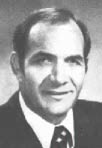Creative Time
One of the questions that has intrigued people since the movie "2001: A Space Odyssey" has been whether computers will eventually take over. You will remember that in "2001", the rogue computer HAL turned on his handlers and dispatched them with absolute amorality. When the movie was made there wasn't a popular phrase to describe computer thinking. Since then, the term artificial intelligence (AI) has come into vogue to define the programming of a computer that can think and reason like a human being.
The very idea of AI has engendered a great deal of acrimony in academic circles. But the question has probably been answered best by Richard Restak, author of The Brain, a book developed from the recent public television series. Dr. Restak doesn't believe that computers will ever approach, much less surpass, human mentality for the simple reason that computers can never perform at less than their best. That is, a computer is either on or off. It is either right or wrong. It can't be partially right. With a computer something is either 0 or 1. There aren't any other possibilities. A computer has to perform at 100 percent or 0 percent. It can't simply idle and perform at, say, 3 percent or 50 percent of its capacity.
It is precisely during those idle moments, those times when humans are performing at less than capacity, that they display their humanity. These are periods when the mind can let its intuition, experience, and imagination coalesce in a shared event that results in the unique human phenomenon of thought. These are the times when creativity pulses and insight flourishes.
Eric Hoffer, the late, self-educated longshoreman from San Francisco, spoke about this phenomenon in several of his books. He was convinced that leisure time, not necessity, Was the mother of invention. He backed up this iconoclastic notion with such examples as the sail, the wheel, and brickmaking--all invented in the course of play or leisure time. He also cited evidence of the bow being a musical instrument before it was a weapon, and of how singing and poetry preceded prose and narration.
Hoffer felt that during an ordinary day's activities we are doing well to keep our heads above water. The mind is so cluttered with the fusspot daily routine that real discovery doesn't have a chance. Hoffer believed creativity is usually spawned in those extended, quiet, and unhurried moments when one's stream of consciousness can flow unfettered.
There are plenty of examples from history to illustrate this point: Archimedes allegedly discovered specific gravity while in a bathtub; Newton discovered gravity while resting under an apple tree; Darwin formed his theory of evolution while sequestered aboard the H.M.S. Beagle; Einstein discovered relativity while he was an underutilized employee in the Swiss patent office. In modern times, Jack Kilby of Texas Instruments developed the silicon chip during a two-week summer vacation.
This phenomenon is not unknown in dentistry. One of the most far-reaching discoveries and developments in orthodontics during the past 15 years has been the straightwire appliance. In fact, every company of note has a straightwire appliance that bears some orthodontist's name. But the originator of the concept was Larry Andrews of San Diego. Early in his professional career, he set a pattern of seeing patients on alternate weeks and using the "free" week for non-patient administration, practice development, pre- and post-treatment diagnosis, clinical research, and just plain thinking. During those weeks when he was not seeing patients, he thought out and developed the idea of a straightwire appliance. It is doubtful he would have worked out the six keys to occlusion or the straightwire concept if he had not set aside thinking time.
It is almost impossible to make any real thoughtful discoveries while in the heat of the battle being waged in our offices as we recement brackets and bands, change broken archwires, return phone calls, dictate correspondence, consult with patients, and on and on. Most people are grateful simply to get through those kinds of days. Moments of genius or insight don't have a chance in such an environment.
There is no guarantee that our moments of leisure will result in a new orthodontic appliance, or a new electronic mechanism, or even an improvement in the techniques we are currently using. But if we are to believe the historical examples and testimonies, the time we spend outside our offices may be as important as the time we are there.


